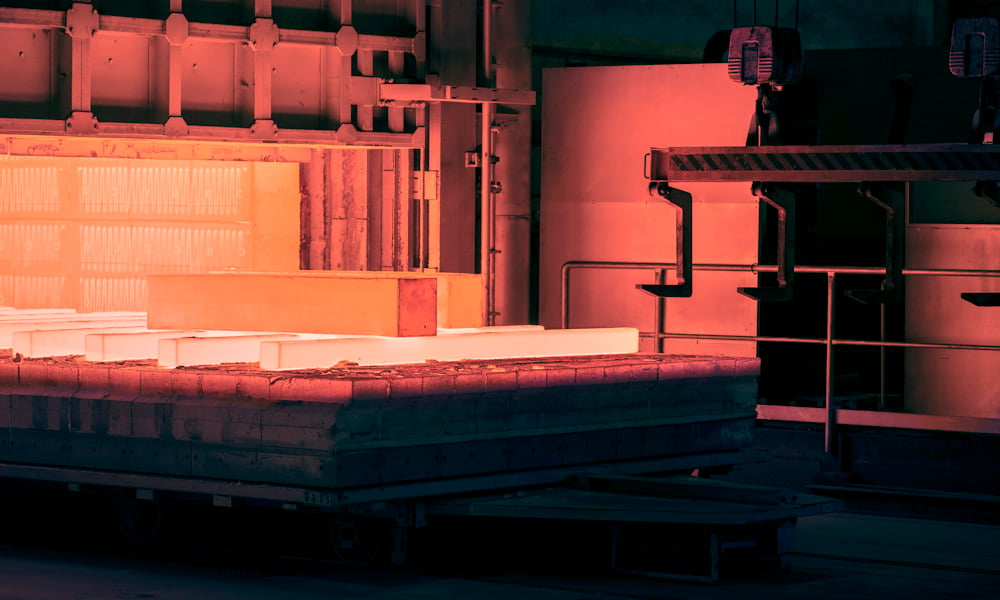In many industrial processes, electric heating can play a significant role when it comes to carbon reductions. By replacing conventional gas heating in heat treatment processes with electric, manufacturers can make significant savings in energy consumption and emissions.
From steel and aluminum to semiconductors and glass, many of the world’s industrial manufacturers are facing the challenges of reducing their CO2 emissions.
 “In fact, with the solutions available today, electric heating represents one of the fastest ways industrial manufacturers can have a meaningful impact on their carbon footprints,” says Robert Stål, President, Kanthal, an Alleima company.
“In fact, with the solutions available today, electric heating represents one of the fastest ways industrial manufacturers can have a meaningful impact on their carbon footprints,” says Robert Stål, President, Kanthal, an Alleima company.
At Thermprocess – the world’s biggest exhibition for innovative technologies for industrial thermoprocessing plants – Kanthal will showcase electric heating as a viable solution that industries can benefit from already today.
“There is still a widespread belief that electric heating cannot deliver the power output and temperatures required for many industrial processes, but we have already proven that our electric heating solutions have no problems with this", says Dilip Chandrasekaran, Business Development Manager at Kanthal.
 "There are many processes within steel manufacturing that can be electrified today and there are other processes that are close to being electrified with just some additional development work. We’re ready to work together with many other manufacturers going forward to help develop bespoke solutions to suit their needs,” Dilip Chandrasekaran continues.
"There are many processes within steel manufacturing that can be electrified today and there are other processes that are close to being electrified with just some additional development work. We’re ready to work together with many other manufacturers going forward to help develop bespoke solutions to suit their needs,” Dilip Chandrasekaran continues.
We sat down with Dilip Chandrasekaran to learn more.
How can switching from gas heating to electric heating effectively make heat treatment processes emissions-free?
Electric heating can eliminate emissions from your heat treatment processes since there is no combustion involved, provided the electric power supply is fossil-free.
How can electric heating deliver the desired efficiency, a thermal efficiency of over 90%?
The directness of electric (resistance) heating enables almost all energy input to the process to be converted into the heat of the process in contrast to gas heating which can have an efficiency of 50% in the combustion process and has heat losses in the exhaust gases.
Why do electric heaters offer effective maintenance-free operation?
Electric heating offers more precise temperature control, less monitoring of the heating process, and uniform heating, thereby requiring low maintenance. In a system with hundreds of burners, there will always be some burners that need repair or maintenance. With electric heating elements, the need for daily maintenance is simply not there.
How can electrification reduce or remove CO2 emissions in a number of steelmaking processes?
Provided that the electric power supply is CO2-free or fossil-free, the electric heating of the process is emission- and CO2-free. Conventional steelmaking processes use gas burners and fossil fuels. Replacing this with electric heating can efficiently remove or reduce CO2 emissions in steelmaking.
Why do you think electric heating technology will play an important role in the steel industry’s transition to a fossil fuel-free future?
Because electric heating has the potential to heat up to high temperatures (1850 C), has a high energy intensity also compared to gas-fired heating, and is scalable to large industrial operations. In combination with access to fossil-free electric power, electric heating is a key enabler for a transition to a fossil-free future.
About Kanthal:
Kanthal is an Alleima company and a world-leading brand for products and services in the areas of industrial heating technology and resistance material. The company develops innovative solutions in creative partnerships with its customers and with a strong commitment to reduce the environmental impact. With skilled people and pioneering technology, Kanthal supports some of the world’s biggest and most exciting projects. For more information, visit www.kanthal.com



